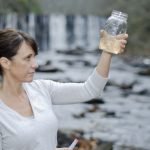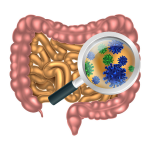Node Smith, ND
Chronic Exposure to Arsenic Toxicity Could Potentially Cause a Slue of Problems
A recent study has uncovered some concerning information about baby food. According to a study conducted by the Clean Label Project1, a third-party watchdog organization for consumer products, a majority of baby foods, including infant formulas, have tested positive for Arsenic contamination. Severe acute Arsenic toxicity is not common, however, chronic exposure could potentially look like a lot of other things: gastrointestinal complaints, rashes, and neurological symptoms presenting like Guillain-barre syndrome, and may be linked to certain types of cancer. As with other heavy metal accumulation in the body, these symptoms can be insidious.
The Clean Label Project
The Clean Label Project is a nonprofit third party organization that “uses data and science to reveal the true contents of America’s best-selling consumer products. Products are tested in an accredited analytical chemistry laboratory for 130 harmful environmental and industrial contaminants and toxins.” The list of product types it has tested includes various types of baby foods and pet foods.
Study on Baby Food Products
The study on baby food products looked at 530 baby food products – both best selling ones, and those new to market. The results showed that 65 percent of the products contained arsenic at levels up to 600 parts per billion. In addition, 36 percent contained lead, and 58 percent contained Cadmium, 10 percent contained acrylamide. The products that contained the most of these harmful metals were: Enfamil, Gerber, Sprout and Plum Organics. The rice based puffs were found to contain the highest amounts of these chemicals. About 60 percent of products tested positive for BPA (bisphenol A) even if they claimed to be “BPA free.”
Arsenic is Highly Toxic in Inorganic Form
Arsenic is a naturally occurring element that is commonly found in groundwater at high levels. It is highly toxic in its inorganic form. Many different crops can contain arsenic if the groundwater that is used for irrigation is contaminated. Countries particularly affected by the presence of arsenic in groundwater include Argentina, Chile, Mexico, Bangladesh, China, India and the USA. Most pediatricians recommend babies do not eat packaged food if parents can help it, but rather eat home cooked vegetables and fruits and other whole foods. This way contamination can be better mitigated.
Image Copyright: <a href=’https://www.123rf.com/profile_oksun70′>oksun70 / 123RF Stock Photo</a>
 Node Smith, ND, is a naturopathic physician in Portland, OR and associate editor for NDNR. He has been instrumental in maintaining a firm connection to the philosophy and heritage of naturopathic medicine among the next generation of docs. He helped found the first multi-generational experiential retreat, which brings elders, alumni, and students together for a weekend camp-out where naturopathic medicine and medical philosophy are experienced in nature. Four years ago he helped found the non-profit, Association for Naturopathic ReVitalization (ANR), for which he serves as the board chairman. ANR has a mission to inspire health practitioners to embody the naturopathic principles through experiential education. Node also has a firm belief that the next era of naturopathic medicine will see a resurgence of in-patient facilities which use fasting, earthing, hydrotherapy and homeopathy to bring people back from chronic diseases of modern living; he is involved in numerous conversations and projects to bring about this vision.
Node Smith, ND, is a naturopathic physician in Portland, OR and associate editor for NDNR. He has been instrumental in maintaining a firm connection to the philosophy and heritage of naturopathic medicine among the next generation of docs. He helped found the first multi-generational experiential retreat, which brings elders, alumni, and students together for a weekend camp-out where naturopathic medicine and medical philosophy are experienced in nature. Four years ago he helped found the non-profit, Association for Naturopathic ReVitalization (ANR), for which he serves as the board chairman. ANR has a mission to inspire health practitioners to embody the naturopathic principles through experiential education. Node also has a firm belief that the next era of naturopathic medicine will see a resurgence of in-patient facilities which use fasting, earthing, hydrotherapy and homeopathy to bring people back from chronic diseases of modern living; he is involved in numerous conversations and projects to bring about this vision.





